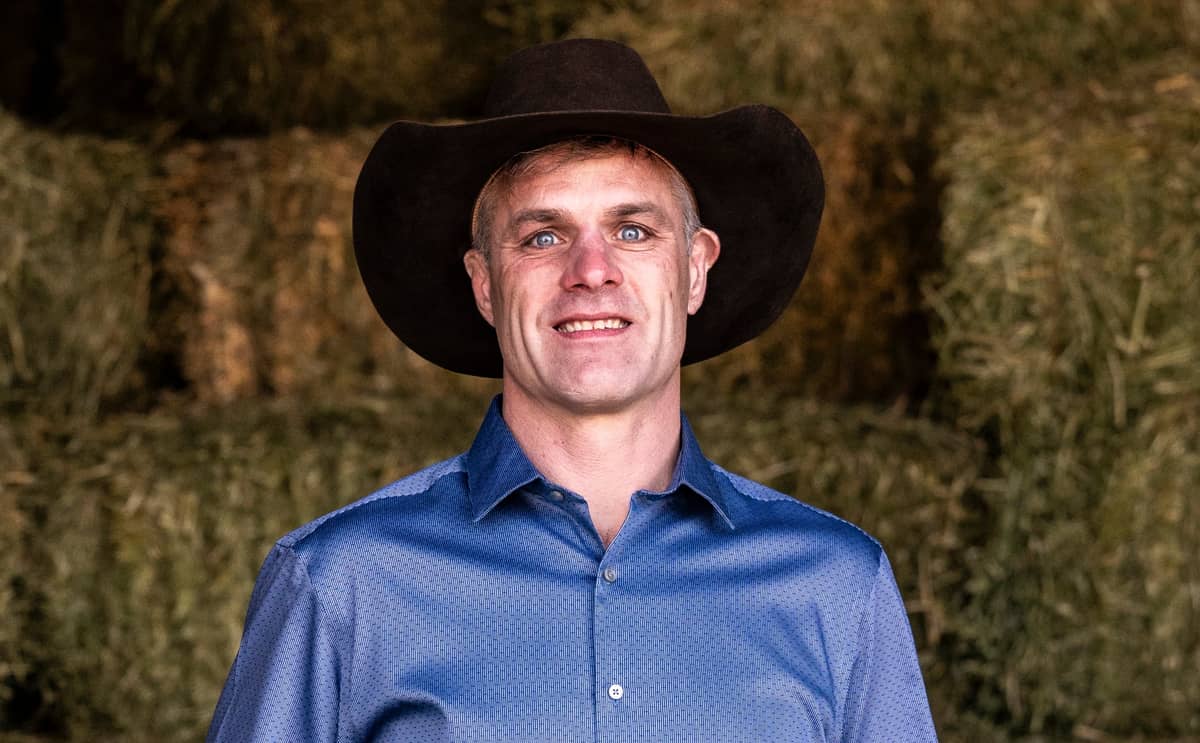250+ years on, the Alexander Schaeffer farm remains alive with animals, including a special herd of cattle.
The farm, which was owned by Schaefferstown’s namesake in the latter half of the 18th century and the early decades of the 19th century, is managed by Historic Schaefferstown Incorporated (HSI).
Eric Fetter, cattle herd manager at the farm, is in charge of keeping the cows fed and healthy. “In some ways, the job is simple,” says Fetter. “It’s a low-input system once your fence is established.”
“It can be so variable, too. Everyday is a bit different.”

He makes his way up to the top of a pasture between two wooded thickets, where the herd is currently grazing. The herd consists of 46 beef stock and 25 brood cows.
It’s a mix of breeds, though the majority are Red Devon. Devon cattle, bred and developed over the course of centuries in the English countryside, were first brought to America in 1623 by the Pilgrims. Other breeds in the group are black Angus and Limousin cattle, which also have extensive histories in Europe (originating in Scotland and France, respectively).

Using an electrified wire that can be staked in the ground, Fetter can easily control how much grass the cows have access to. This allows him to set precise boundaries wherever he wants to stimulate new grass growth or trample down thick brush.
Fetter rotates the herd through pastures at least twice a day, which is a critically important duty. The frequent rotations ensure the health of the cattle, the pastures, and the natural stream that runs through the farm. Moderately tall grass maximizes energy for the cows, as well as encouraging a natural population of smaller creatures like birds and insects; less waste in the stream decreases the levels of pollution that seep into larger waterways; and flies are less likely to be a bother on a moving herd.


Alexander Schaeffer would have kept a number of animals on his farm. Dale Zimmerman of HSI notes that similar 18th century farmers in the area would have had free-roaming hogs, English sheep, a mixed cattle herd (likely including the English Shorthorn and a Devon breed specialized for milk production), and poultry including Dominique chickens, Emden geese, and Bronze turkeys.
Fetter also owns the Hidden Spring Farm at 3000 Heidelberg Avenue in
Newmanstown, where he sells 100% grass-fed beef and lamb in addition to pastured pork, chicken, and eggs. The Devon cattle at the Schaeffer farm are sold in packages (PDF) of eighths, fourths, halves, and wholes. Hidden Spring Farm also operates a store at the Newmanstown address with most available cuts of meat.
The landscape and pastures are managed by HSI. Using a preserved site like the Schaeffer farm presents unique constraints to someone like Fetter who is used to working on a modernized farm setup. “One of the challenges of working on a farm like this is that it doesn’t look like a normal modern farm,” explains Fetter. “It’s a more naturalized, rugged landscape.”
Fetter’s point is proved soon enough, as he notices a few stragglers grazing in a hillside thicket emerge and herds them back towards the others.



There are a number of additional animals at the Schaeffer farm not under Fetter’s management, including chickens, geese, sheep, and rabbits. Pigs are not present on the Schaeffer farm, though they are at Hidden Spring.
“It is kind of amazing to see the diversity in creatures that live on this farm,” says Fetter, including the wild birds and creatures that thrive in old-fashioned landscapes like Schaeffer’s.
View some more photos from the farm below:




To learn more about the Schaeffer farm and upcoming events, including the Cherry Fair on June 22nd, visit the HSI website. To order from Fetter and the Hidden Springs Farm, visit their website or call 717-949-3969. More information on the upcoming HSI events to come.























